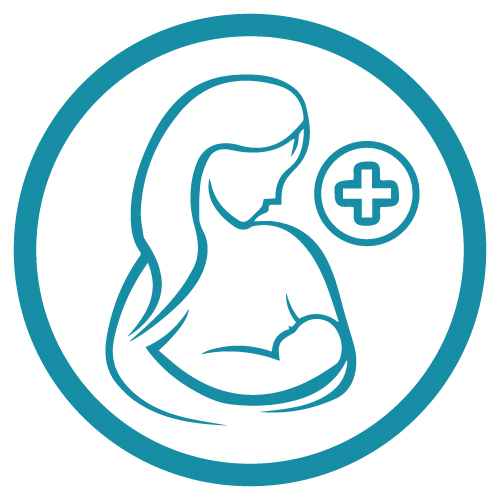 Breastfeeding Support Online Course(s) & Continuing Education
Breastfeeding Support Online Course(s) & Continuing Education
Access the latest clinical skills and research for Breastfeeding Support for Lactation & Breastfeeding professional training. These Breastfeeding Support online courses provide practice-changing skills and valuable perspectives from leading global experts. This Breastfeeding Support education has been accredited for a variety of CEUs / CERPs and can be accessed on-demand, at your own pace.
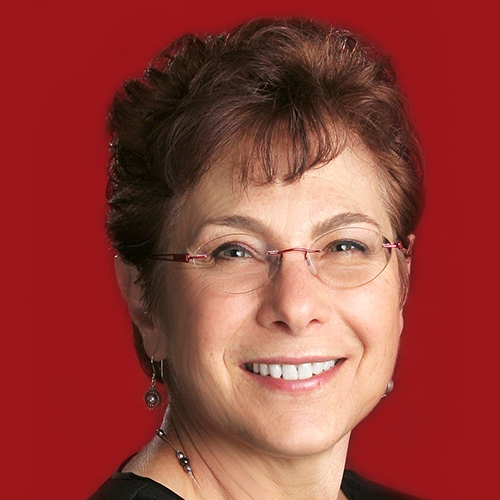
Optimizing the Feeding Abilities of Premature Infants to Support Breastfeeding

Robin P. Glass, MS, OTR, IBCLC practices occupational therapy at Seattle Children's Hospital in Seattle, WA and is an Assistant Clinical Professor in the Department of Rehabilitation, at the University of Washington. Her clinical specialty is the treatment of infants, with a strong focus on feeding and swallowing issues. She provides treatment for hospitalized infants including the NICU with a wide range of medical and developmental diagnoses. She is NDT trained and is a 20 year Board Certified Lactation Consultant. Robin has extensive national and international experience speaking about infant feeding.
Robin has received numerous awards including the National Association of Neonatal Therapists (NANT) 2015 Pioneer Award and the 2018 Nancy Danoff Spirit of Service award from the Breastfeeding Coalition of WA and Nutrition First. Robin has co-authored numerous journal articles as well as the book Feeding and Swallowing Disorders in Infancy: Assessment and Management.
Topic: Optimizing the Feeding Abilities of Premature Infants to Support Breastfeeding - [View Abstract]
For the baby born prematurely, learning to breast/chestfeed may be more complex. There are factors related to the infant, the environment and to the lactating parent that can make this process more challenging. Many babies often leave the NICU not fully breastfeeding and continue to struggle once at home. This presentation will describe, evidence-based approaches to developing breastfeeding in the premature infant. It will review developmental and co-morbid factors affecting the infant’s feeding acquisition and describe interventions that can be used to improve breastfeeding skill.
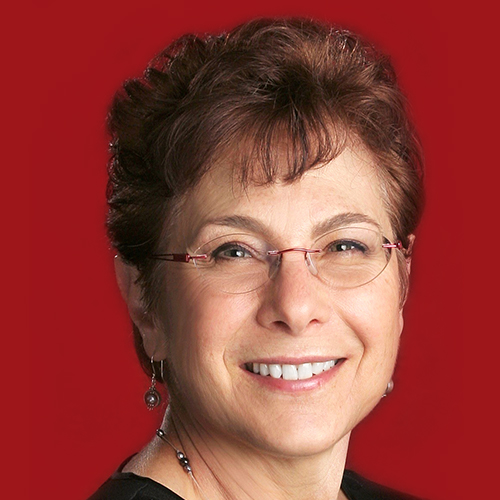
View Details / Enroll
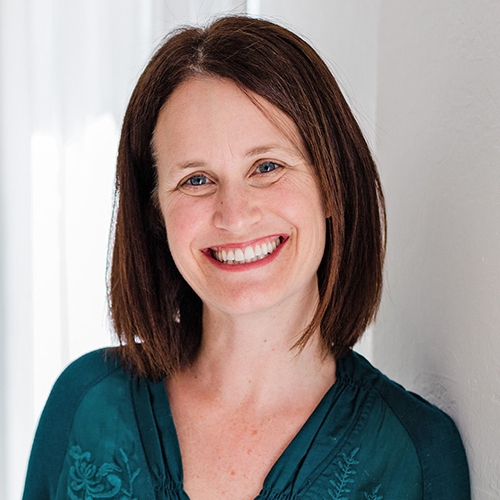
Overcoming Challenges When Providing Virtual Support to Breast/Chestfeeding Families

Robin Kaplan has been an IBCLC since 2009, the same year that she opened up the San Diego Breastfeeding Center. She founded the San Diego Breastfeeding Center Foundation in 2016, a 501(c)3 organization whose mission is to reduce breastfeeding disparities among families of color and low-income families, as well as provide scholarships for women of color to become IBCLCs.
Robin was the founding host of the Boob Group podcast and published her first book, Latch: a Handbook for Breastfeeding with Confidence at Every Stage in 2018. Robin’s center has been a clinical training site for the UCSD Lactation Consultant program since 2015.
In 2019/2020, Robin helped write the curriculum for the University of California San Diego Lactation Educator Counselor program and was the Program Manager for the UCSD Curriculum Development Team for the Pathway 1&2 Lactation Consultant program. Robin has a BA from Washington University in St Louis and Masters in Education from University of California Los Angeles. Robin is currently attending the Functional Nutrition Alliance to become a Functional Nutrition Counselor.
The need to provide virtual support for breast/chestfeeding families may have been ignited by the pandemic, but telehealth is here to stay. The convenience and flexibility of meeting with families virtually removes barriers, such as location, childcare, and transportation. It also comes with its own set of challenges, such as difficulties reading body language, making connections with our clients, and assessing oral anatomy/milk transfer. Yet, with some intentional preparation, crafty detective skills, open-ended questions, and protocols for complicated situations, you may find that virtual consultations can truly meet the needs of your clients/patients.
This presentation will help attendees think through those important preparations to optimize virtual support.

View Details / Enroll
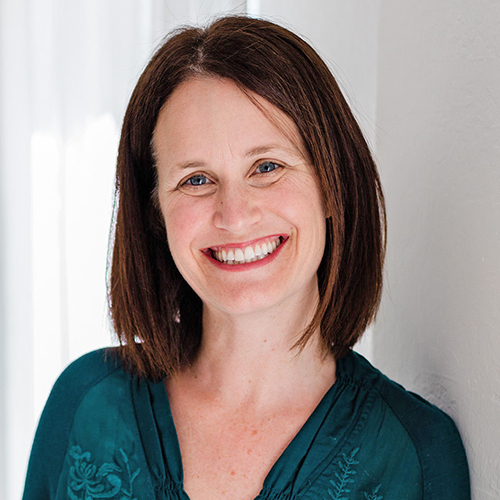
View Details / Enroll

Responsive Breastfeeding: The Key to Optimal Infant Development

Martina Donaghy is a registered midwife of 30 years, an IBCLC of 22 years and a Senior Midwifery Lecturer of 17 years’ experience. During the past two decades her main posts as a hospital based Infant Feeding Specialist and a Midwifery Lecturer has seen a focus on educating registered midwives, student nurses, midwives, paediatric and Specialist Community Public Health nurses on the importance of breastmilk and breastfeeding, ensuring these students are equipped to support the breastfeeding mother in achieving her feeding goals. Martina has led and supported her university to achieve successful UNICEF UK Baby Friendly accreditation for the BSc Midwifery and Specialist Community Public Health Nursing programmes. She also teaches on the Midwifery Master’s program specialising in the promotion and support of physiological birth, breastfeeding, biological nurturing, and maternal, infant attachment. Recent publications include a chapter in Examination of the newborn and neonatal health, titled Helping parents make decisions regards to infant feeding and cosleeping. Her most recent midwifery article focused on supporting maternal and infant physiology after birth. She is originally from Australia and has resided in the United Kingdom for 30 plus years.
From the moment of conception, maternal and fetal physiology is intrinsically linked in a synergistic partnership, with optimal infant development dependent on this relationship continuing well into the infants first 1001 days. A key pivotal facet of this reciprocal relationship is responsive breastfeeding. Responsive breastfeeding is far more than a way of infant feeding, but a sensitive synchronous parenting style that secures optimal growth, nutrition, immune development, infant /maternal attachment, whilst fostering successful lactation and the development of positive feeding habits well into infancy. This presentation will explain what is meant by responsive breastfeeding, exploring the science behind how this type of feeding promotes optimal infant health.
The presentation will conclude with an exploration of the wider benefits of responsive breastfeeding, examining the possibility of this type of feeding style contributing to improving several public health issues, in particular childhood aversity and obesity. Lastly, recommendations for promotion and support of responsive breastfeeding will be outlined.
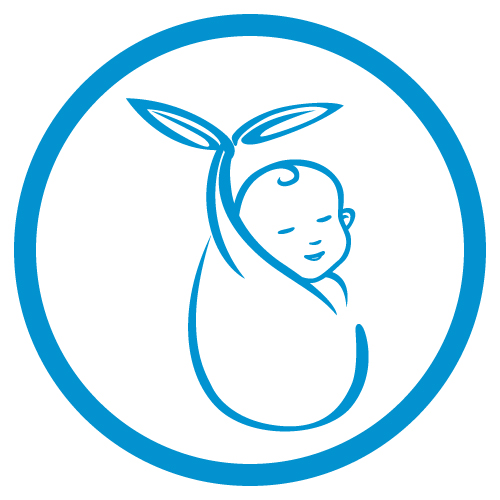
View Details / Enroll
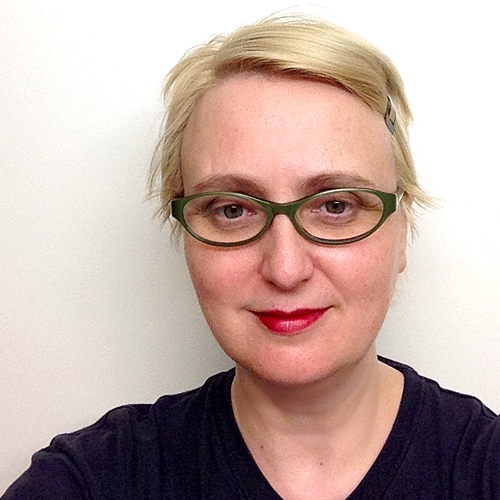
Rummaging in the Tool Bag: Examples of Approaches Borrowed from Other Disciplines, Applied in Lactation Support Practice

After working in the UK and France, lecturing and then in film and TV production, Annabelle became a breastfeeding support volunteer in France 10 years ago, after the birth of her first child. She then worked in lactation support in the UK NHS in London, whilst also volunteering for the National Childbirth Trust (NCT). Since 2016, she was the Infant Feeding Coordinator at Suffolk County Council Health and Children’s Centres, and had a small private practice. In her county council role, Annabelle took the Health and Children’s Centre staff through Stage 1 of UNICEF Baby Friendly Accreditation, and left the department well prepared for Stage 2. Whilst there, she oversaw an increase in breastfeeding rates, and contributed to Public Health initiatives to promote breastfeeding, including help to improve breastfeeding knowledge amongst doctors. Annabelle qualified as an IBCLC, lactation consultant in 2017. In October 2018, Annabelle took up her current post as lactation consultant for the 48th medical group at RAF/USAF Lakenheath.
Rummaging in the tool bag: how we can borrow from other disciplines, and enhance our care.
As infant feeding specialists, we should be open to discovering new tools that renew our practice. Historically, we’ve incorporated elements from elsewhere, e.g. Active Listening (Rogers and Farson, 1957), borrowed from psychology and conflict resolution.
Changes to the UK support landscape, mean that parents may not access traditional breastfeeding peer support, and instead see health staff. A diversity of background, can mean staff bring additional skills that then complement those acquired under the UNICEF Baby Friendly standard.
For specialist professionals, such as IBCLCs, some of these tools can also complement practice, and can be used to great effect.
This presentation proposes to look at some elements we can borrow that enhance our clinical practice. We will review aspects of Active Listening, and then move on to examine elements in the Signs of Safety model and Solihull Approach. These are just two examples of widely practiced approaches in the UK, and there are many other fields to be borrowed from.

View Details / Enroll
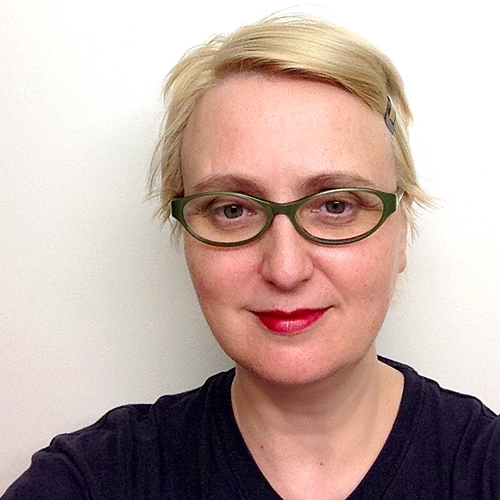
View Details / Enroll

Skilled Lactation Support in Suboptimal and Low Resource Settings: Onsite Mentoring as a Game Changer

As a Pediatrician and an IBCLC, Shacchee is attracted to ways of promoting health and well-being for families. She transitioned to lactation support 14 years ago after her first daughter was born, realising the felt need for skilled Lactation Support in her community.
She works at a tertiary care hospital in New Delhi, India, and heads a Lactation team, supporting families in their antenatal, intra-natal and postnatal periods. She also trains medical and paramedical staff in skilled lactation support.
She is the current President and Executive Team member of ALPI (Association of Lactation Professionals India). She works as a clinical instructor, helping train future lactation professionals in various aspects of Skills, Ethics, Scope of Practise and Communication.
She co-ordinates between Public and Private healthcare bodies to provide equitable lactation support across her community.
She is an advocate of teamwork in supporting dyads with special lactation challenges (oral restrictions/ NICU babies etc) and has been working to bring experts from different fields together for comprehensive lactation support.
Working with different teams locally and nationally allowed her to achieve the goal of making, "skilled lactation support a reality in India."
Married to Vipul, they have two super girls Navya (14) and Ayana(11).
We have protocols and optimal models of care for lactation specific challenges. Does this mean we cannot provide optimum support in resource limited settings or less than ideal settings?
Skilled lactation support can mean different things in different settings. To serve a community, its crucial to understand the particular needs of the community and to be able to cater to them in a culturally acceptable and feasible way without compromising on the quality of lactation care, more so in resource limited settings.
India has a huge population of families in need of lactation support and we also have scarcity of skilled and trained lactation support people. We are such a diverse country that our customs, language, socioeconomic milieu (and thus the challenges) change every few Kilometres.
This presentation talks about the various means with which we were able to improve the availability Skilled Lactation Support in the community, especially utilising our most plentiful resource, our community, with online and onsite mentoring....i.e. skilled lactation support to the community by their own community.

View Details / Enroll

View Details / Enroll

Spirited or Calm: How Temperament Impacts Breastfeeding/Chestfeeding and Parenting

Andrea Herron, is one of the first and longest continuous certified pediatric nurse
practitioners in the United States. After more than 40 years working with breastfeeding
mothers and their babies and teaching parenting classes, she is among one of the
most experienced consultant in the field of lactation. Regardless of the issue or concern,
Andrea has guided thousands of mothers to meet their breastfeeding and early parenting
goals through support groups, lactation consultations, and childrearing education. After
receiving a Master's in pediatric nursing from UCLA, Andrea became an early pioneer in
the back-to-breastfeeding movement, and educated health professionals as an instructor
in the UCLA lactation educator course, all over the United States. Her private lactation practice,
Growing with Baby in San Luis Obispo, California, was used as the national model for
private practices by Women Infant and Children (WIC), the federally funded health and
nutrition program. One of her favorite and most popular topics she teaches through her
Growing with Baby parenting groups is, Understanding Your Infant’s Temperament.
This topic and many of the other topics she teaches are included in her newly released
book, Suckle, Sleep, Thrive: Breastfeeding Success Through Understanding Your Baby’s
Cues. Co-written with Lisa Rizzo.
Andrea has been married to Larry Herron, an orthopedic spine surgeon,
for over 35 years. They are the proud parents of a grown son,
two Labradors, a cat, and parrot. The couple reside in Shell Beach,
California.
Topic: The Relationship Between Parent/Infant Synchrony, Breastfeeding Success and Infant Cues - [View Abstract]
Knowledge about infant temperament has been known since the early 1960s with the release of the ground breaking research of Dr. Alexander Thomas, Stella Chess and Herbert Birch and yet, among the general public there seems to be a lack of information about this important body of science (temperament). When parents perceive their baby as content and seemingly non-demanding, they may be shocked and dismayed to find out during a routine well baby visit that the baby is underweight or is failing to thrive. They thought the baby was content because she didn’t give clear cues, and as a result, was underfed. In another scenario, when the baby is irritable despite frequent feeding mothers may lose confidence and question the quantity and quality of their milk and prematurely wean. The behavior of the intense baby that screams on the scale when weighed and is tortured by the bath is overwhelming and misunderstood. When behaviors are misread or inappropriately responded to, optimal physical and emotional development is potentially affected. This presentation will help the learner understand the classic nine temperament traits and how they are grouped into classifications. The listener will learn about the topic of “goodness of fit “and its impact on the long-term emotional health of the infant and developing child. Finally, with case study examples, the emphasis is on how temperament impacts breastfeeding/chestfeeding.

View Details / Enroll


Dr. Pound is a Clinical Investigator at the CHEO Research Institute, an Assistant Professor in the Department of Pediatrics at the University of Ottawa, and the Resident Research Coordinator for the Pediatric Residency Program at the University of Ottawa. She is a specialist in the field of Consulting Pediatrics and has presented at national meetings, and published in the area of breastfeeding, and has authored a position statement on breastfeeding for the Canadian Pediatric Society.
Topic: Supporting Exclusive Breastfeeding; What's A Physician Got To Do - [View Abstract]
In this presentation, Dr Pound will discuss the evidence supporting the importance of physician support, in order to encourage and maintain successful breastfeeding. An overview of recent research of Canadian physicians’ attitudes, comfort and knowledge with regards to breastfeeding will be provided, with a particular emphasis on specific knowledge gaps. Clinical scenarios will be discussed, in which ways to address breastfeeding difficulties will be examined, from the physician’s standpoint. Common universal myths and pitfalls will be addressed, and ways to efficiently integrate breastfeeding assessment into one’s clinical practice.

Supporting Older First-Time Mothers with Breastfeeding and Becoming a Mother: Insights for Clinical Practice

Rosann Edwards is an Assistant Professor in the Department of Nursing and Health Sciences at the University of New Brunswick Saint John, an experienced front line public health nurse, and lactation consultant. She is also a third-degree karate black belt, and mother of boys. Rosann’s research and community work focuses on breastfeeding, the transition to motherhood, maternal satisfaction with breast/infant feeding, mothering in the shelter system, and empowering vulnerable populations of women and their children. She is the co-editor of the recent Demeter Press Anthology Breasts across Motherhood: Lived Experiences and Critical Examinations.
Topic: Supporting Older First-Time Mothers with Breastfeeding and Becoming a Mother: Insights for Clinical Practice - [View Abstract]
Mothers 35 year of age or older are the fastest growing demographic of new mothers in many developed countries, & a steadily emerging global trend. The quality of a mother's breastfeeding experience has the potential to affect breastfeeding duration and factors that promote healthy maternal-infant attachment, infant growth and development, and maternal mental health. There is a lack of understanding of how older first-time mothers make decisions about breastfeeding and mothering. Learn more about new research that looked to answer the research question ‘What factors affect how first-time mothers >35 years of age make decisions about breastfeeding and the motherhood in the first six months postpartum?’ The findings provide a framework to work in partnership with older first-time mothers to enhance positive breastfeeding experiences, adaptation to motherhood and positive mental health outcomes through strategies that promote resiliency and shared decision-making around early postpartum care, and breastfeeding/infant feeding supports. Key components include helping mothers identify what satisfaction with breastfeeding is for them, encouraging increased levels of knowledge, control, trust and ownership, supporting them in redefining their core self, and providing realistic, evidence-based information.

View Details / Enroll
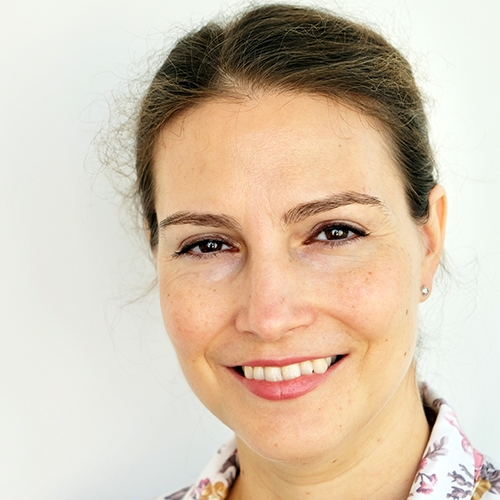
Talking to Babies: Basic Communication Skills for Lactating Parents and Healthcare Specialists

Dr. Smaranda Nay is a Family Doctor, an IBCLC, a Personal Development Counselor and a mother. She has been studying Transactional Analysis psychotherapy since 2007 and is now in her second year of training to become a Somatic Experience therapist. She uses her knowledge to teach parents how to connect with their children and how to attune to their babies’ needs, both through individual counselling sessions and in classes. She is part of the Romanian Lactation Consultants Association and holds lactation education courses for future IBCLCs. She gives lactation counselling consults and holds breastfeeding and childcare courses.
She also holds personal development workshops for teenagers and adults, collaborating with non-formal education organizations and schools. She is particularly curious about the development of an attuned relationship between people and building intimacy and trust. Working with babies, she observes the parent-child connection and explores its potential in healing and growth, and how it impacts the future development of the individual. Working with teenagers and adults, she facilitates ways in which childhood disruptions can be healed in the present.
This is a presentation on how explaining things to babies of all ages, including newborns, can help solve difficult moments during lactation in the parent-baby relationship and lead to healthy parenting. Communication blocks happen frequently due to changes, events, and anxiety, and sometimes they can interfere with breastfeeding/chestfeeding. At least some of these blocks can be solved by communicating with the baby in an open, compassionate, and respectful way.
Lactation and healthcare professionals will learn how to approach such situations, what questions to ask and what suggestions to make to parents so they and their babies can overcome the situation. Lactation and healthcare professionals will also learn about different cases that I have encountered, how the method was applied and what were the results.
I deeply believe that the way we talk to babies, communicate with them and how we teach parents to do that is an essential part of our work. On the long term, it can make an important difference to how those babies are treated, respected, parented, educated, and raised and what kind of adults they will become.

View Details / Enroll
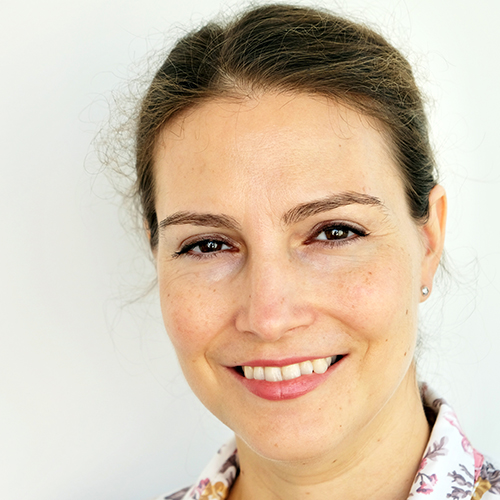
View Details / Enroll


Tina Revai came to breastfeeding professionally in her practice working with families as a nurse of 25 years. However, once becoming a mother, her understanding of breastfeeding as an important factor in the feeling of success (or not) in parental role transition became experientially apparent. In order to support others towards self-defined breastfeeding success, Tina became a La Leche League Leader in 2006 and an IBCLC in 2007. She is currently co-president of the British Columbia Lactation Consultants Association and continues to work directly with families in her community of Port Alberni, on beautiful Vancouver Island, Canada.
The Relational Breastfeeding Framework is a process driven model for clinical breastfeeding supports that is consistent with the origins of the IBCLC profession. Little has been published that theorizes pragmatically about lactation support, bridging both the instrumental and relational aspects of this work. The introduction of this framework is an important contribution to theory development within the profession in that it unravels the complexity of reflective and dyad centered care, making clear the process for those who seek to practice in this way. This presentation makes the case that relational breastfeeding support is consistent with the underlying philosophy and history of the profession and should be the goal of all lactation consultants. However, equally relevant, another purpose to this presentation is to spark a generative debate about what we do and how we do it.

View Details / Enroll






